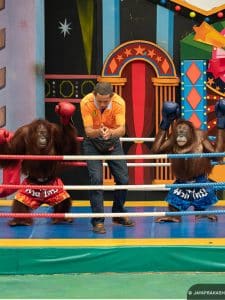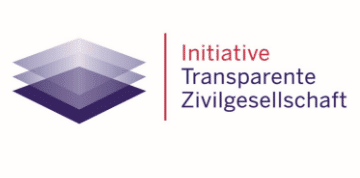Illegal wildlife trade
“Every orangutan orphan in our rescue centres represents a dead orangutan mother. For a mother orangutan would never leave her baby alone.“
Dr Jamartin Sihite, CEO of the BOS Foundation
Greatest threat to biodiversity
While international experts rarely reach a consensus, they do on this particular issue: illegal global wildlife trade is one of the greatest threats to biodiversity, especially for species like orangutans that are already endangered.

While it is legally prohibited in Indonesia, orangutans are still being hunted, typically to obtain their highly valued babies, which are traded at a high price on the black market. These infants are subsequently smuggled abroad, ending up in private zoos and amusement parks or being kept as pets. It is a lucrative business.
The fight against illegal wildlife trade
 Starting with the 69th UN General Assembly in New York in 2014, a resolution to combat poaching and illegal wildlife trade has been adopted every year. Almost all states have also already declared their opposition to wildlife smuggling in the 1975 Washington Convention on International Trade in Endangered Species of Wild Fauna and Flora (CITES). Unfortunately, reality shows a different picture. By now, the illegal trade in protected animal and plant products ranks fourth among organised crime worldwide — behind drug trafficking, human trafficking and product piracy. The growing turnover is estimated to range between eight and 20 billion euros per year.
Starting with the 69th UN General Assembly in New York in 2014, a resolution to combat poaching and illegal wildlife trade has been adopted every year. Almost all states have also already declared their opposition to wildlife smuggling in the 1975 Washington Convention on International Trade in Endangered Species of Wild Fauna and Flora (CITES). Unfortunately, reality shows a different picture. By now, the illegal trade in protected animal and plant products ranks fourth among organised crime worldwide — behind drug trafficking, human trafficking and product piracy. The growing turnover is estimated to range between eight and 20 billion euros per year.
Stopping wildlife trafficking
Poaching and the illegal wildlife trade should no longer solely fall under the domain of species conservation but also be addressed within foreign and security policy. This is because the proceeds from poaching often fund further criminal activities. For this reason, among others, we require a significantly stronger commitment from the international community to halt the illegal wildlife trade.
Do we need more laws against wildlife trafficking?
No. Adequate laws exist. However, compliance with them must be enforced, both nationally and internationally. And if laws are violated, drastic financial consequences should follow. Organised crime cannot be defeated with appeals alone.
Der Kampf gegen den illegalen Handel mit Wildtieren
You are currently viewing a placeholder content from YouTube. To access the actual content, click the button below. Please note that doing so will share data with third-party providers.
More InformationBOS Stands with Victims of the Wildlife Trade
We at BOS are combating this unfortunately still relatively unknown threat. Over the past 30 years, we have rescued orangutans from Taiwan, Kuwait, and particularly Thailand. Regrettably, many of these rescued orangutans cannot be released back into the wild due to certain diseases transmitted by humans or because of their age. For this reason, BOS supports not only the rescue and potential repatriation of these animals to Indonesia but also provides the best possible accommodation for orangutans that can no longer be released into the wild in Thailand.
We are continually working on establishing an informal network of supporters. Simultaneously, we are intensifying our efforts to apply targeted political pressure. If you have any further questions or suggestions regarding the issue of illegal wildlife trade, please don’t hesitate to contact Daniel Merdes, Managing Director of BOS Germany. (030 — 890 60 76 — 22
[email protected] )
Make a donation for the orangutans
Make a one-time donation
Orangutans need our help! With your donation for the orangutans you accompany and support an orangutan on its journey until its release into the wild.
Make a donation for the orangutans
Make a one-time donation
Orangutans need our help! With your donation for the orangutans you accompany and support an orangutan on its journey until its release into the wild.
Frequently asked questions
What is illegal wildlife trade?
Your Subtitle Goes Here
In illegal animal trafficking, animals are hunted and traded, even though there is a ban on hunting and trading them under the Washington Convention on International Trade in Endangered Species of Wild Fauna and Flora (CITES). This ban also applies to the products derived from these animals.
After drug trafficking, human trafficking, and product piracy, wildlife trafficking is the largest illegal business worldwide. The associated plundering of wild animal and plant species is one of the greatest threats to biodiversity.
Malayan bear bile for eye ailments, rhino horn powder as an aphrodisiac, or the adorable orangutan baby as a toy for billionaires or a cash cow in amusement parks – millions of wild animals are captured, tortured, and killed every year.
Which animals are affected by poaching?
Your Subtitle Goes Here
Elephants, rhinos, amphibians, reptiles, rare birds, primates and wild cats are among the most sought-after victims of poaching and illegal wildlife trade worldwide.
What makes people poach?
Your Subtitle Goes Here
The people who hunt, capture or kill animals illegally in most cases do so in order to provide a small income for themselves and their family. Thus, they often do it out of necessity. The big financial gains in this dirty business are being made by unscrupulous middlemen and large mafia trafficking rings.
For this reason, we work intensively with many communities in Borneo, carry out educational work and have become one of the largest employers in the region ourselves. Because people who realise that the value of an animal and its habitat is greater and more important than a few quickly earned rupiahs will prefer to work for the benefit of nature instead of plundering it.
What is the global ranking of illegal wildlife trafficking within organized crime?
Your Subtitle Goes Here
By now, the illegal trade in protected animal and plant products ranks fourth among organised crime worldwide — behind drug trafficking, human trafficking and product piracy, with an estimated annual turnover between eight and 20 billion euros.

You have a question?
Donations are a matter of trust
Transparent use of funds is a matter of course for us. In September 2013, we joined the a non profit initiative of Transparency International Germany and signed its declaration of commitment.
